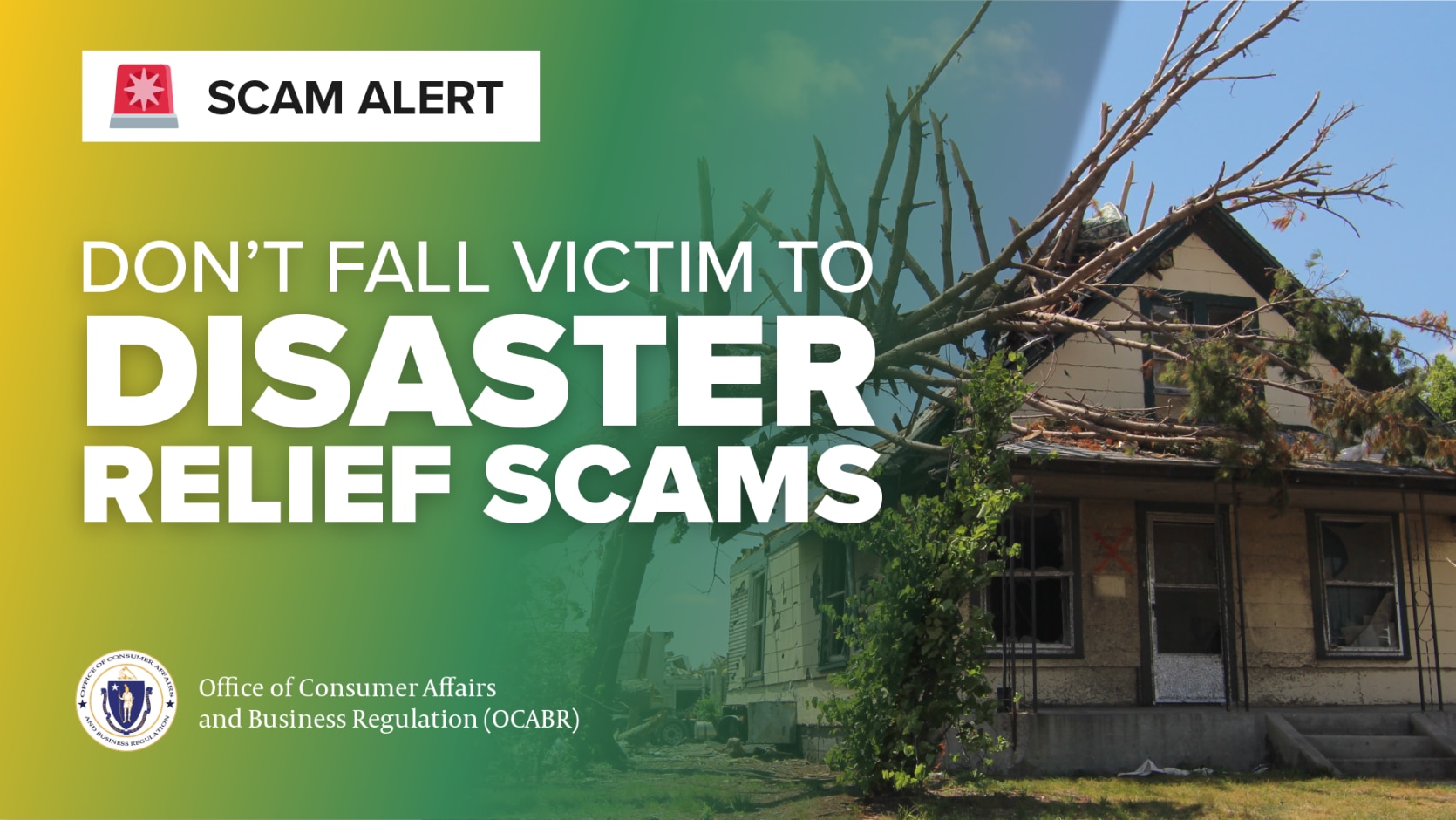- Office of Consumer Affairs and Business Regulation

Natural disasters are devastating, unpredictable, and a breeding ground for scammers to prey on those who are most vulnerable. Fraudsters use the opportunity to take advantage of people impacted by the event and kindhearted individuals wanting to help. In the wake of severe weather, such as the recent Hurricane Ian, donation scams and aid fraud often run rampant. The U.S. Government Accountability Office reported that up to $1.4 billion in fraudulent assistance payments were distributed following Hurricanes Katrina and Rita.
The deliberate act of defrauding individuals or the government post-catastrophe is known as disaster fraud. These types of scams comes in various forms: charitable solicitations, contractor and vendor fraud, price gouging, and property insurance fraud.
- Charitable solicitations: Illegitimate or unreliable organizations claiming to be affiliated with the government or national organizations, seek donations from individuals, but do little to no work with, or for, those in need. Instead, the “charity” steals any donated funds. These scams are usually done through email, social media, crowdfunding, text message, or cold calls.
- Contractor and vendor fraud: Scammers pose as repairmen offering to fix damages from natural disasters for a reasonable cost. In reality, these contractors or vendors collect deposits or insurance money with no intention of making the necessary repairs.
- Price gouging: Sellers take unfair advantage of consumers following a disaster by elevating prices of essential goods and services to an unreasonable amount. Exploiting this spike in demand is unethical, and sometimes considered illegal. If you believe you are witnessing price gouging practices in Massachusetts, please report it to the Office of the Attorney General.
- Property Insurance fraud: Homeowners take advantage of natural disasters by exaggerating claims, inflating losses, and sometimes deliberately cause damage to their property. These homeowners submit fake claims to their insurance providers and are paid funds they do not need or deserve.
There are several ways to protect against disaster fraud schemes, especially charity solicitations:
- Only give to charities that you are familiar with and can trust. Use the Charity Navigator or Giving Alliance to locate or confirm reputable organizations.
- Don’t submit payment using wire transfers or gift cards. These forms of payment are difficult to track and often requested by scammers.
- Inquire about how much of your donation will go directly to the cause or program you want to help. Confirm this information on the verifiable charity’s website or annual report. If the details reported by the representative you spoke with are different, do not follow through with a donation.
- Research if your donation will be tax deductible. Look up the organization using the Internal Revenue Service’s (IRS) Tax Exempt Organization Search. The organization will be listed with the IRS if donations are deductible. Keep in mind that contributions to individuals and political action committees are not deductible.
- Keep a record of all donations and review your bank or credit card statements following your contribution. Make sure you were only charged the agreed upon amount and no subsequent unauthorized transactions occur.
As always, take your time when evaluating a donation opportunity and do not provide your personal or financial information to anyone you cannot verify.

